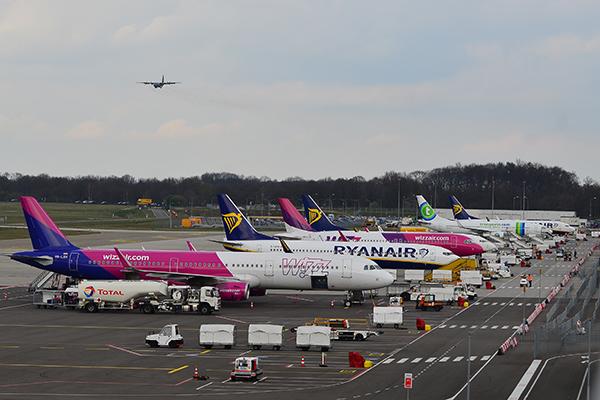
LYON, France—Eurocontrol, the organization in charge of air traffic management in Europe and some neighboring territories, has produced two traffic recovery scenarios that illustrate the importance of coordination between its member states.
To keep the COVID-19 pandemic in check, operational procedures will have to be adopted. If member states coordinate on procedures and lifting restrictions, the recovery will be faster, according to Eurocontrol. The coordinated measures scenario (in blue on the diagram below) leads to a swifter ramp up in IFR traffic.
“The key issue for airlines and airports is the way states will authorize and organize the recovery,” a Eurocontrol spokesperson said. At airports, this may involve requirements such as physical distancing, passenger temperature checks upon departure or arrival and advance screening and tracing. On board, at issue may be the use of the middle seat, personal protection equipment (PPE) for crew members and passengers, disinfection and changes in the baggage policy.
If airlines have to comply with one set of regulations on departure and another set on arrival in another country, this will be onerous on the industry. Uncoordinated approaches will significantly impede the rate of recovery, according to Eurocontrol’s simulations (see the grey curve on the diagram above).
The scenarios are not forecasts. They depend on variables such as the duration of the pandemic across Europe. Nevertheless, the difference between the two gives states an incentive to cooperate.
Intra-European traffic is expected to return first, based on what has happened in China. There, about 40% of domestic flights are now being operated, albeit at very low load factors, Eurocontrol said.
“Development of a common approach is vital in to minimize the disruption and the cost of the pandemic,” the agency emphasized. The two scenarios lead to losses of 45% (5 million) and 57% (6.2 million) of flights, respectively, in 2020.





